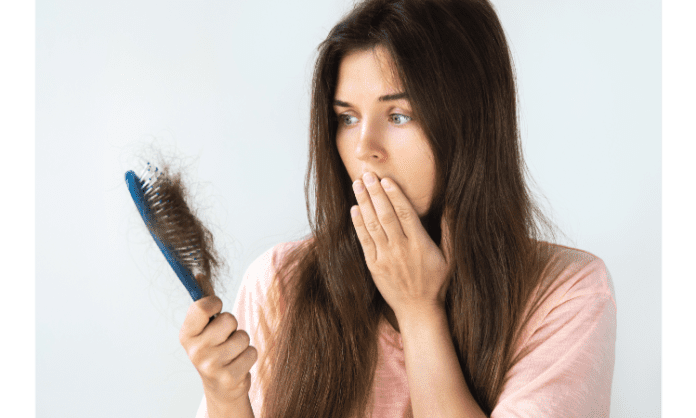
Hard water is a problem that affects many people, including those who are concerned about their hair. Hard water is caused by mineral deposits in your water supply. These minerals can build up inside your pipes, and then they are released into your tap when you turn on the water, which can build up on your hair and cause it to become dry and brittle. If you have hard water, then you may have already noticed that your hair is falling out.
The problem with hard water is that it can strip away nutrients from your hair and skin, making it more difficult for them to stay healthy and strong. If you are looking for a way to prevent this from happening, then the first thing that you need to do is find out whether or not your water is hard. This article will help you understand what causes this problem, how it works its way into your shampoo and conditioner products, and what remedies you can take to treat the problem at home.
What is hard water

Hard water is water that has a high mineral content. It’s also called “mineralized” or “alkaline” water. The minerals in hard water can clog showerheads, pipes, and faucets, which can lead to an increase in the amount of hair loss.
The minerals in hard water are usually calcium magnesium bicarbonates and carbonates, sulfates, iron, chloride, copper, and zinc in groundwater causing water hardness. These minerals cause an increase in calcium levels in your body, which makes it difficult for your body to absorb nutrients from vitamins and minerals. This can lead to hair loss. The minerals can leave residue on your hair, causing it to look dull and feel rough.
What does hard water do to your hair
Dull hair
If you have dull hair, you are probably dealing with hard water. Hard water is a common problem that can make your hair feel dry and lifeless. This is because hard water contains minerals like calcium and magnesium that can build up in your hair and make it feel rough. If this is the case, it’s important to fix the problem so that you can start loving your locks again. Hard water can cause hair loss and damage because it strips away the natural oils in your hair that keep it healthy, shiny, and hydrated.
Clogged pores
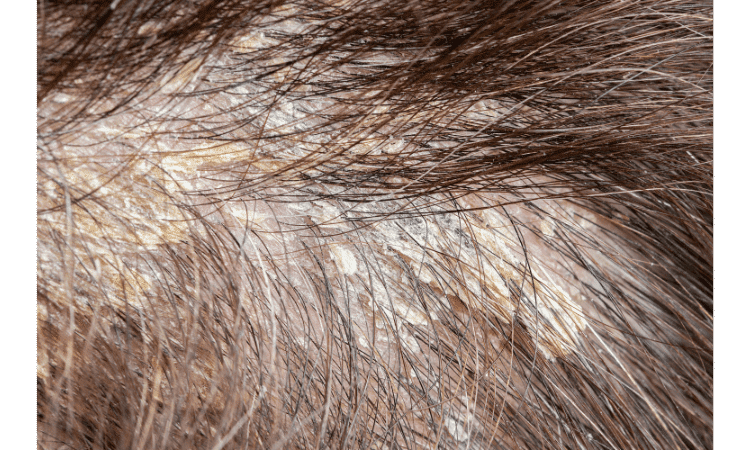
Hair loss from hard water in your shower may be caused by clogged pores, which can result in a buildup of excess oil and dead skin cells that can cause dandruff. It’s likely that the hair follicles are clogged with minerals, making it impossible for new hair to grow. Hard water contains high levels of minerals like calcium and magnesium, which can clog your pores and prevent the hair follicle from absorbing nutrients. This causes the hair to become weaker and fall out more easily.
Frizzy hair
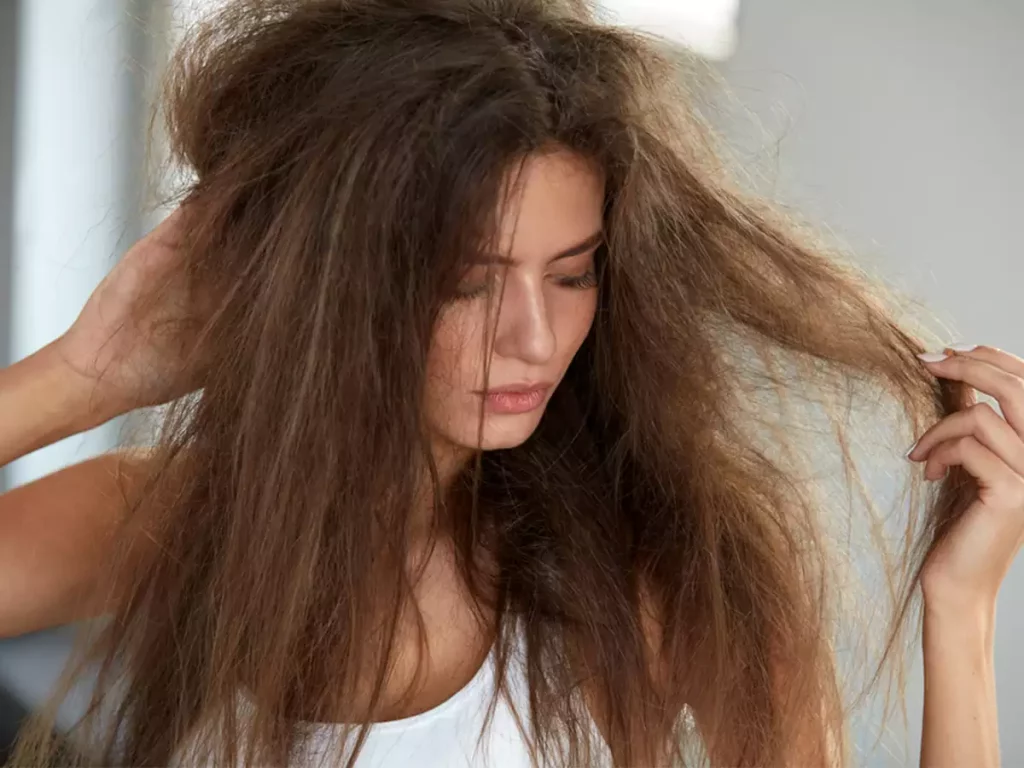
Frizzy hair is one of the most common problems women have when it comes to their hair. This can be caused by a number of different factors, but one of the most common is hard water in your shower. If you live in an area with hard water—which means that it has high mineral content—then you may be experiencing frizziness when you get out of the shower. Hard water is caused by dissolved minerals in your shower water—and it’s a big problem for your hair. The minerals in hard water react with the natural oils in your hair to create a coating that makes your strands more brittle. This can lead to breakage and frizziness, which can be difficult to manage with traditional shampoos and conditioners.
Fading Color
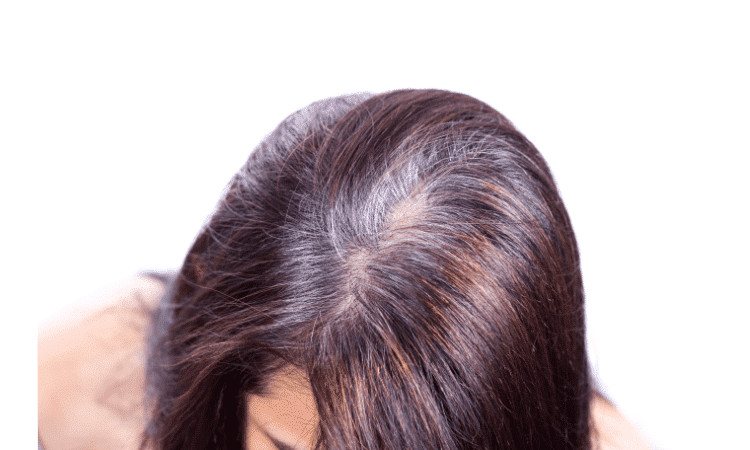
Showering in hard water can cause your hair color to fade. This is because the minerals in the hard water deposit onto your hair, causing it to lose its vibrancy and shine. If you notice that your blonde hair is starting to look ashy or even yellowish, this could be a sign of hard water damage. The minerals in hard water can strip your hair of its color, which will make it appear lighter or even white in some cases.
Split ends
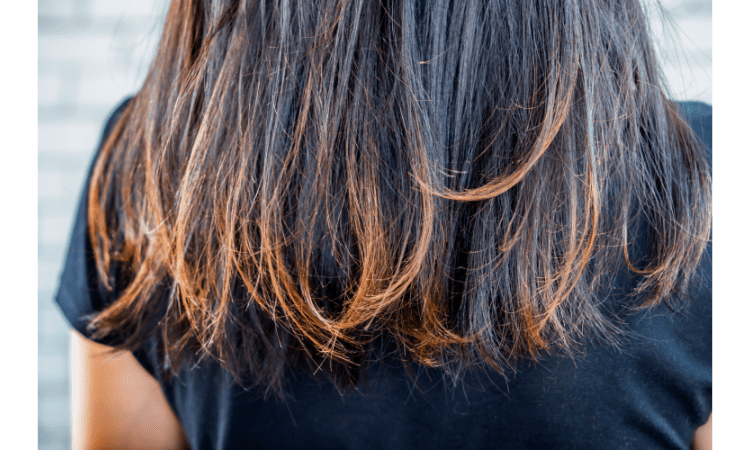
Split ends are a common problem for many people, but the cause of them can be surprising. Hard water in the shower leads to split ends, which is one of the most common causes of hair loss. When your hair is exposed to hard water and shampoo, it swells up and expands. This expansion makes it more likely for your hair to break off at the tips—which are already weak and vulnerable from being exposed to hard water. When the soap and shampoo you use to wash your hair mix with the minerals in your shower, they form a sticky substance that clumps together on your hair. This can cause split ends, which make your hair look dull and damaged.
Hair loss
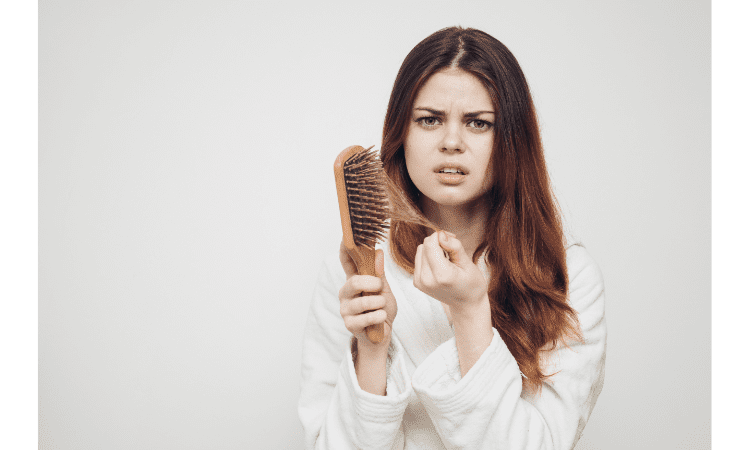
Hair loss from hard water in your shower is a problem that many people face. If you are experiencing hair loss, there are a few things you can do to counteract the damage. Check, If you’re finding that your hair is falling out more than usual and you think it might be related to the water in your shower, try taking a look at the other products you use in your hair. If any of them contain sulfates or silicone, they may be making your scalp more sensitive to the minerals in hard water. In that case, switching out those products for ones that don’t contain those ingredients could help keep your hair from shedding as much.
Greasy scalp
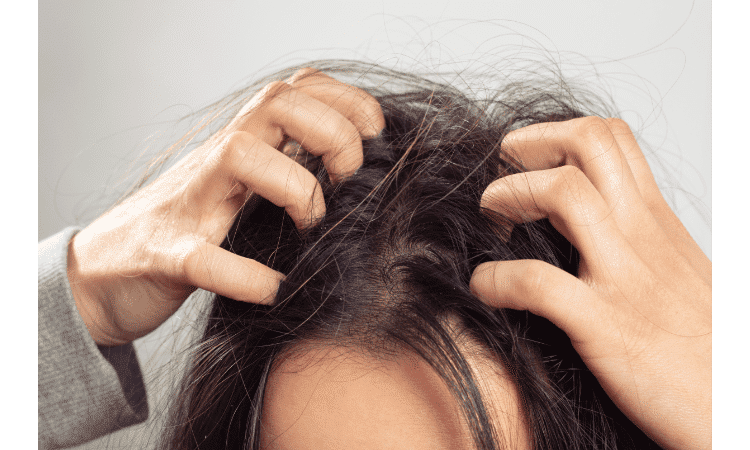
If you’re experiencing greasy hair after your shower, it’s possible that the water in your home is contributing to this issue. The minerals in hard water can build up on your hair and scalp, creating an oily coating that can weigh down and make your hair look greasy. Hard water is high in minerals and causes buildup on your shower head, which then drips down onto your hair. This makes it feel greasy and look dirty.
How to prevent hair loss from hard water
Use a water softener

If you find that your hair is falling out after taking a shower, it could be because of the hard water in your shower. A water softener will help to remedy this problem.
A water softener is a small unit that attaches to your water supply and adds chemicals to soften the water before it enters your home. This process also prevents minerals and other debris from building up in your pipes, which can cause clogs and prevent proper drainage. The result is softer, smoother, more manageable hair.
Use purified bottled water

If you’re noticing hair loss when showering, it’s likely due to hard water in your shower. Hard water contains high levels of minerals like calcium and magnesium, which can leave a residue on your hair and skin. This residue can clog the pores of your scalp, resulting in hair loss. A simple way to eliminate these minerals is by using purified bottled water instead of tap water in your shower. Bottled water has been filtered through a reverse osmosis process that removes all the minerals from the water before bottling it up, so you’ll have silky smooth hair without any dullness or dryness.
Get a shower filter

Hair loss can be caused by hard water in your shower. If you’re wondering how to stop hair loss, look no further than a shower filter. A shower filter is an easy way to make your water soft and keep your skin and hair looking great. A shower filter is an easy way to keep hard water out of your hair. The filter is installed right under your showerhead, and it helps reduce the number of minerals and chemicals that are in your water, which can cause dry skin and scalp, as well as hair loss.
Use the chelating shampoo
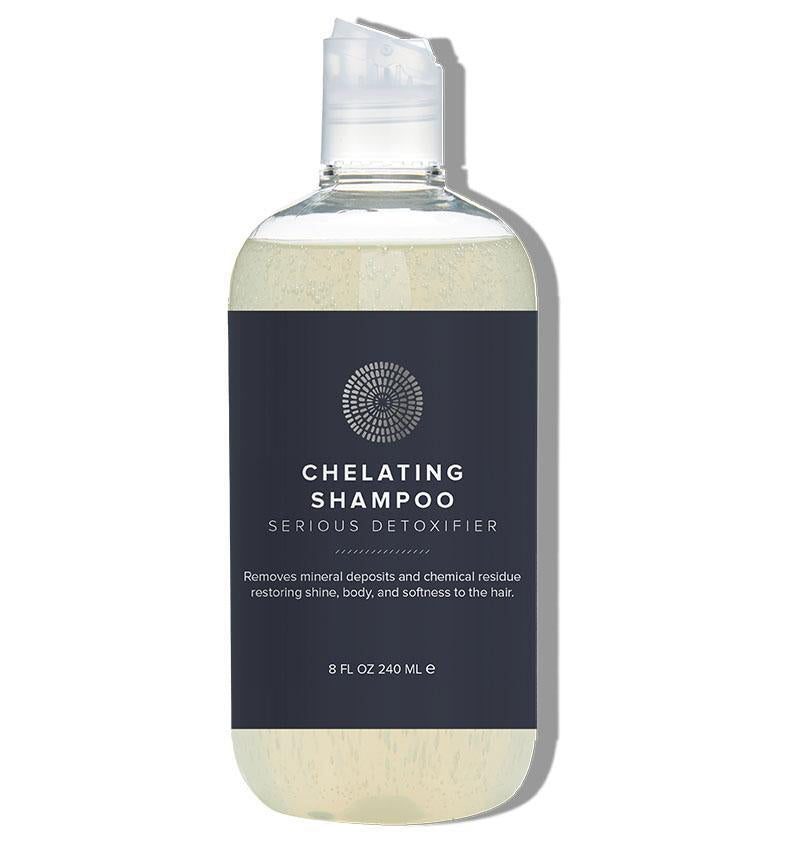
If you’re experiencing hair loss, it could be due to hard water in your shower. Hard water contains minerals that can build up on your hair over time, causing it to become brittle and break off. To prevent this from happening, try using a chelating shampoo once a week. Chelating shampoos help remove the minerals from your hair so that they don’t continue to accumulate. This shampoo will help remove the heavy metals from your hair, allowing it to retain its natural moisture and shine. It also helps reduce frizz and static electricity that comes from hard water, making your hair look and feel healthier.
Use lemon rinse
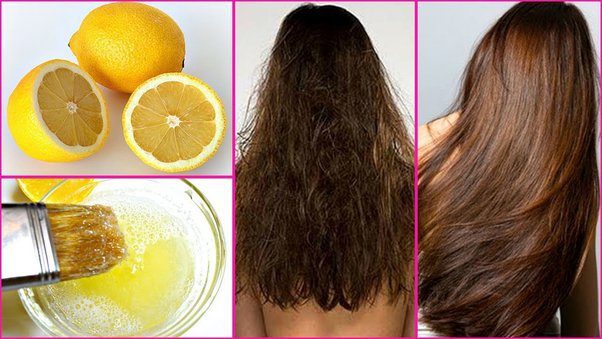
If you’re experiencing hair loss from hard water in your shower, try using a lemon rinse. Lemon juice helps to remove the minerals and chlorine that can build up in your hair and cause damage. Lemons contain citric acid, which gently removes buildup from your hair by breaking down the minerals that make up hard water. Lemon is a natural cleanser that fights the effects of hard water on your hair. Just squeeze some fresh lemon juice into a spray bottle, add warm water, and shake well to combine. Then spray it onto your scalp and hair after each shower to keep them healthy.
Use a hair mask
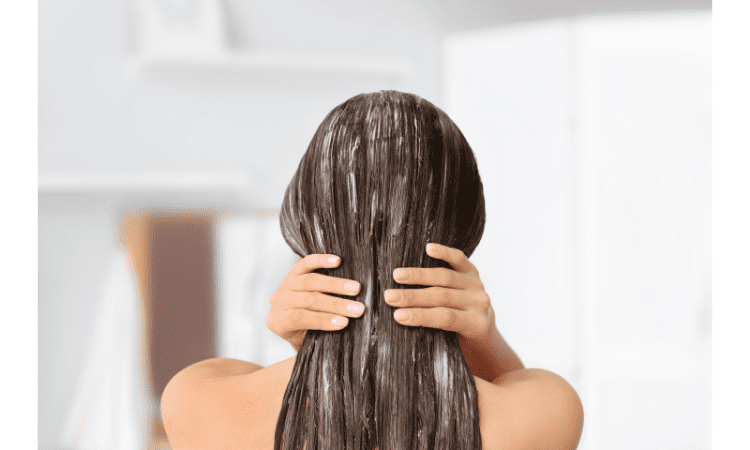
Hair loss from hard water in your shower may be a sign of an issue with the pH of your hair. Hard water is water that has more minerals than soft water, and it’s common in many areas. The minerals in hard water can cause buildup on your scalp, which can lead to dandruff and hair loss.
A hair mask is an easy way to treat this problem and get your healthy hair back. Hair masks are made with natural ingredients that nourish and moisturize the scalp, removing any buildup caused by hard water. They can also help strengthen your hair and prevent future damage from occurring. If you’re concerned about hair loss from hard water in your shower, try using a hair mask for at least two weeks before making any changes to your routine.
Use apple cider vinegar

If you’ve noticed more hair loss than usual after using your shower, it might be because of the hard water in your water supply.
Hard water contains high levels of minerals like calcium and magnesium, which can be damaging to hair. Your hair will start to break down and fall out as a result. Fortunately, there’s an easy fix: just pour some apple cider vinegar into a glass of warm water, then rinse your hair with that solution instead of plain water when you shower. The acids in the vinegar help neutralize the pH of the water and remove those minerals from your hair follicles. This will help soften the water and reduce mineral buildup on your hair.
Conclusion
Water is one of the most essential ingredients in our lives. We use it to clean our clothes, cook our food, and wash our hair. Unfortunately, hard water can have some negative effects on your hair. When you take a shower, the hard water in the shower builds up on your scalp and hair. As the water evaporates, it leaves a white film that dries out your hair and scalp. The minerals in hard water also clog your pores, which can lead to dandruff. By using a water softener in your shower and washing your hair with a shampoo that contains silicon, you can reduce or prevent the loss of hair caused by hard water.











